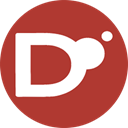Exploring Top C++ Alternatives for Modern Development
C++ is a cornerstone of programming, a powerful, general-purpose language renowned for its performance and control. As a statically typed, multi-paradigm, and compiled language, it offers a unique blend of high-level and low-level features, making it indispensable for system programming, game development, and high-performance applications. However, the ever-evolving landscape of software development often necessitates exploring alternatives that might offer different strengths, ease of use, or specialized functionalities. If you're looking for a C++ alternative, you've come to the right place.
Top C++ Alternatives
Whether you're prioritizing cross-platform compatibility, memory safety, or rapid development, there's a C++ alternative out there that fits your specific project needs. Dive into our curated list of languages that can serve as excellent substitutes for C++.

Java
Java is a general-purpose, object-oriented, and concurrent programming language. It's a fantastic C++ alternative known for its 'write once, run anywhere' capability, thanks to the Java Virtual Machine. It's a free, open-source language available across a multitude of platforms including Mac, Windows, Linux, Web, Android, and more. Key features include garbage collection, cross-platform compatibility, and robust object-oriented programming.

C (programming language)
C is the foundational language from which C++ evolved, making it a natural C++ alternative. It's a general-purpose, free, and open-source language widely used for system programming due to its close-to-hardware capabilities. Available on Mac, Windows, Linux, Android, and iPhone, C offers features like manual memory management, inline assembly, and the ability to work at the kernel level, perfect for low-level tasks where C++ might be overkill or you need even finer control.

Rust
Rust is a modern systems programming language that stands out as a strong C++ alternative, particularly for its focus on safety and performance. It runs blazingly fast, prevents almost all crashes, and eliminates data races. Rust is free and open-source, available on Mac, Windows, Linux, and BSD. Its features include strong static typing, type inference, a robust package manager, and excellent compiler explanations, making it a compelling choice for reliable and high-performance applications.

C#
C# (C-Sharp) is a multi-paradigm programming language developed by Microsoft, offering a robust C++ alternative, especially within the .NET ecosystem. It encompasses strong typing, imperative, declarative, functional, generic, and object-oriented programming. C# is free and open-source, supported on Mac, Windows, Linux, and BSD, and features a compiled, object-oriented language structure that is highly productive for enterprise applications and game development (Unity).

Ruby
Ruby is a dynamic, reflective, general-purpose object-oriented programming language, making it a good C++ alternative for web development and scripting. It's free and open-source, available on Mac, Windows, Linux, BSD, and Haiku. Ruby combines a Perl-inspired syntax with Smalltalk-like features, offering dynamic typing, a comprehensive package manager (RubyGems), and powerful text processing capabilities, favoring programmer productivity and readability.

Go (Programming Language)
Go, also known as Golang, is an open-source programming language designed by Google to make it easy to build simple, reliable, and efficient software. As a compiled language, it offers performance comparable to C++ while simplifying concurrency and network programming. It's free and open-source, available on Mac, Windows, Linux, and BSD. Go features built-in concurrency with goroutines and channels, strong readability, and robust test case management, making it an excellent C++ alternative for scalable backend services.

Lua
Lua is a powerful, fast, lightweight, and embeddable scripting language, often used as a C++ alternative for game development and extending applications. It's free and open-source, supported on Mac, Windows, Linux, Android, iPhone, and various other platforms. Lua combines simple procedural syntax with powerful data description constructs, making it highly configurable and efficient for scripting purposes.

Perl
Perl is a high-level, general-purpose, interpreted, and dynamic programming language, serving as a versatile C++ alternative for text processing, system administration, and web development. It's free and open-source, available on Mac, Windows, Linux, BSD, and Haiku. Perl borrows features from various other languages and offers strong shell integration, making it a powerful tool for scripting and data manipulation.

D (Programming Language)
D is a programming language with C-like syntax and static typing, positioned as a direct C++ alternative aiming to combine efficiency, control, and modeling power with safety and programmer productivity. It's free and open-source, supported on Mac, Windows, Linux, and BSD. D offers a multiparadigm approach, including functional and object-oriented programming, high-level features, and unique concepts like contract programming, making it a compelling choice for modern system and application development.

Haskell
Haskell is an advanced purely-functional programming language, offering a unique C++ alternative for those seeking robust, mathematically sound code. It's an open-source product of extensive research, allowing for rapid development of reliable software. Haskell is free and open-source, available on Mac, Windows, Linux, and BSD. Its features include strong static typing, functional programming paradigms, and tail call optimization, making it ideal for applications requiring high correctness and complex logic.
Choosing the right C++ alternative depends entirely on your project's specific requirements, your team's familiarity, and the desired trade-offs between performance, development speed, and safety. We encourage you to explore these languages further to find the best fit for your next venture.